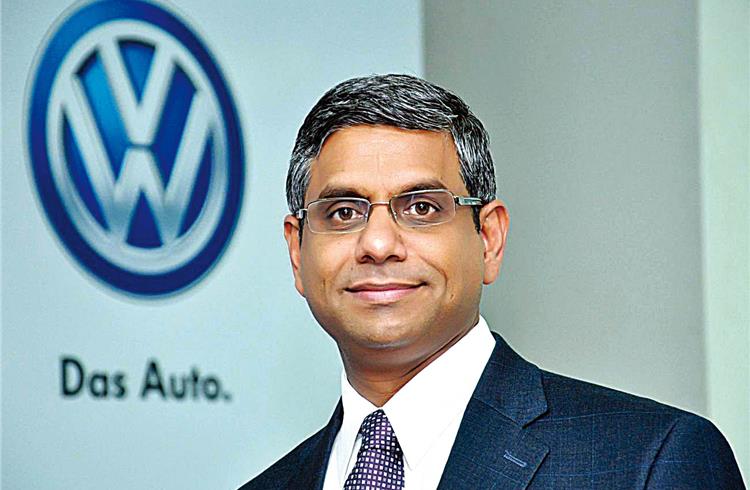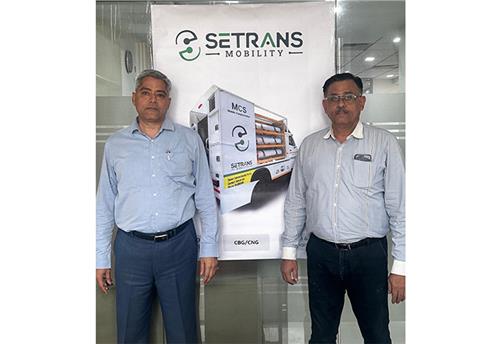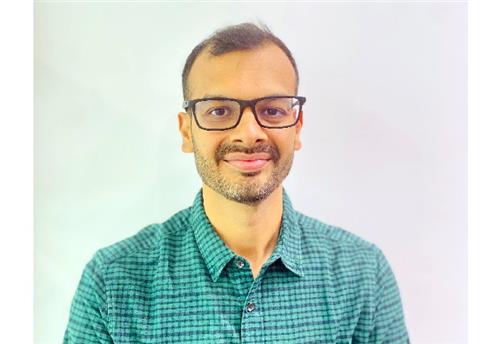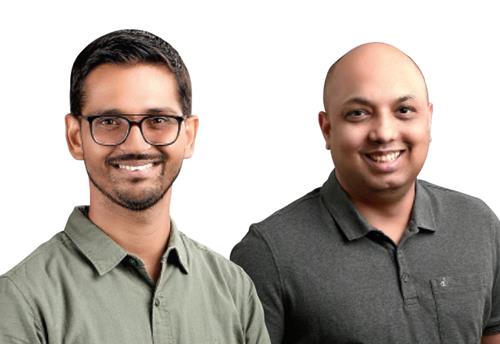'Our philosophy is very clear — a Volkswagen is a Volkswagen, regardless of where we build it.'
In the Autocar-Bloomberg TV India 'CEO On The Drive' series, Mahesh Kodumudi, Volkswagen India’s president and MD, speaks to Hormazd Sorabjee on the upcoming diesel engine plant
In the Autocar-Bloomberg TV India 'CEO On The Drive' series, Mahesh Kodumudi,
Volkswagen India’s president and MD, speaks to Hormazd Sorabjee on the upcoming
diesel engine plant, increasing localisation, eyeing new segments and platform sharing.
Volkswagen’s recent Rs 240 crore investment in the diesel engine plant has come after a long time and there has been no major launch since the Vento. Is it that VW isn’t fully committed to India?
We are a relatively new brand in India. We came with the Polo and Vento, both mass-market cars, in end-2010. So you can’t expect us to keep investing more and more. Then, the economy slowed down very significantly, which created uncertainty. Political instability added to this to some extent too. We’ve had a learning experience in India, which is a complex country.
All these combined, we decided to react to this initial market phase by going into a consolidation phase which is primarily to focus on productivity, enhance localisation and optimise our cost structure. Now we are slowly beginning to exit this phase with the announcement of this engine factory.
VW is knocking on Toyota’s door to be the world’s largest carmaker and huge markets like China are fuelling its growth. So you wouldn’t be putting that much effort in India because you have the rest of the world to worry about. Is that right?
I am not sure that we didn’t prioritise in India. I am given to understand that at Wolfsburg the discussion is more about India than most global markets. India was important but maybe to the outside world it appeared like we had slowed down.
We were learning how to operate in this market with the economy slowing down, we had to explore international markets for exports which are now very successful. Along with that, when the volumes go down, we need to consolidate and increase our localisation and optimise our cost structure because VWs are highly uncompromising in terms of technical specifications.
Do you think you're putting quality where the customer can’t see it and doesn’t want it. I understand something like a volatile organic compound or VOC level was not correct and you imported the material. I don’t think any other company would have done that.
I am not sure whether customers don’t want this quality. Perhaps they don’t see this quality. We tried to localise the plastic that goes in an instrument panel but the local material was quite inconsistent. Initially, it met our quality requirements but subsequently in production the lot-to-lot variation was very high. It had VOC emission variations and the scratch resistance was not as good. Since this would compromise our specifications, we decided to revert to the imported material.
We think the Indian customer is getting more and more discerning and clearly beginning to appreciate the product, quality and robustness of our engineering and the build quality.
Many are discerning enough to recognise the technology and specifications as well as the quality that we put into our cars.
Could there be, let’s say, adjustments in terms of VW specs and customer needs?
It's a very good point. Where do we put our money – very high specs that are not immediately apparent to the customer or in featured content which the customer appreciates and buys?
Our philosophy is very clear – a Volkswagen is a Volkswagen, regardless of where we build it. We will not do anything that will damage or compromise the DNA of this brand.
Over the past 3-4 years we have significantly enhanced the capability of our suppliers. The moment you start localising, your costs come down. Now we will get on to a phase where we could get those savings somewhere else such as more feature content that the customer is able to see, perceive and enjoy.
Was localisation one of the challenges and a big impediment because maybe you struggled to localise fast enough at the same time the rupee depreciated?
Yes, localisation is absolutely essential for a sustainable business case. We need to achieve up to about 90 percent local content in India which will be true net-local content in India in order to have a sustained business case, particularly for a brand like VW where the specifications are very high.
If you continue to import, the costs are very high. I don’t think the capabilities of the suppliers materially or significantly affected growth in India. Yes, we did face a major challenge but I’m very proud to say that for the models which we produce in the Pune plant we have over 130 suppliers who supply direct materials that go into the cars. That represents roughly 65-70 percent of local content in terms of material value. Of this, nearly 70 percent or around 65-odd suppliers are pure Indian and first-time suppliers to the VW Group.
Was there a change in your global supplier strategy in a bid to drive down costs from Indian suppliers?
Back in 2007-08, our supplier selection strategy was very clear about not to take a lot of our European or foreign suppliers into India. We saw tremendous potential in India’s supplier base, in developing them and exploring their capabilities.
There were challenges, some localisation has been delayed and there were even a couple of cancellations but we are crossing that hump one by one. For example, the seat fabric in the new face-lifted Polo is new and comes from an Indian supplier. The previous-generation Polo had imported fabric and significant cost. It took three years to develop it to meet our specification and now this Indian supplier meets our requirements.
Returning to the Polo and Vento, you had a good start but eventually sales started fizzling down. Do you think product specs or the engine were not really appropriate for India, specifically the 1.2-litre diesel Polo? Was there some learning from the initial products?
Definitely. There are two aspects to it. One is localisation and the other is product indigenisation. The Vento particularly was designed for India. We did learn some lessons. The 1.2-litre diesel engine was perceived as a bit noisy and we corrected that in the new Polo. It has a low sump as well and we had to put a sump-guard. All those issues are gone now.
The new 1.5-litre diesel has replaced the 1.2-litre TDI engine. Every car company has to go through a learning curve and that’s exactly what we did.
If VW is going to be serious about India, it should be looking at segments which are really key to the market. You have just two products in the sub-Rs 10 lakh segment where all the action is and there are reports of the sub-4-metre, Polo-based sedan. Which segments do you find attractive?
Yes, in the sub-Rs10 lakh range, we have only the Polo and the Vento, their variants and different engines. We have tried to create excitement in our products with our GT TSI engines and now the Vento Konekt but we recognise that we have to expand our product portfolio if we intend to be a significant player in India.
We are definitely looking at all the segments, the fast-growing ones like the sub-4-metre and compact SUV segments and also at higher-end models. We are looking to bring in the new Passat but no decision has been arrived at yet.
VW is known for platform sharing but in India it’s at a little bit of crossroads as to which platforms to use — the old PQ25 legacy platform or the newer but lot more expensive MQB or a PQ12? Or do you need a low-cost platform for India?
The PQ25, even though it’s a slightly older platform, shouldn’t be misconstrued as old technology. The PQ25 is an excellent and modern platform. However, the MQB platform offers a higher level of modularisation, which means we can spin off a number of models from the same platform.
We are debating whether to continue with the PQ25 platform or to make a one-time investment and go to the MQB platform so that they are compatible with the rest of the platforms. This decision is yet to be arrived at, hopefully within a year’s time.
So the new models could be a compact SUV, future sedan or maybe an MPV?
I don’t think we have to first decide on the platform; we can also decide the other way around. We can decide the segments we are going to compete in and then decide what would be the suitable platforms for that.
Given that VW's styling is very mature, western and European, will there be any tweaking to cater to Indian tastes, say for future facelifts?
In terms of the styling, I am not sure we need to add a lot of spicing, it’s a timeless design. The proportions of each of our models in India, seen from any angle, are near-perfect. I think we need to look more at evolutionary styling rather than revolutionary styling and that would be the philosophy of the Volkswagen Group as well.
VW has the moral high ground with safety since its cars have really come out on top with the NCAP ratings. Do you think safety will eventually become a differentiator because in India people don’t want to pay for it?
In terms of safety, we offer dual airbags in all the Polo variants and we didn’t do this as a result of some safety rating or NCAP certifications; we proactively took this decision even before the NCAP tests.
We believe Indian customers are acutely becoming aware of both active as well as passive safety devices in cars. The government has also taken up the subject of safety and there are a lot of activities underway in road and vehicle safety. We will continue that – it’s just our philosophy, not any moral high ground.
There’s a perception that the cost of ownership of VW cars (and European cars) is very high and you just can’t match the cost of ownership of Japanese cars. What do you have to say about this?
Perhaps this was true in the early days but now it is a myth and a perception that we have overcome.
Increased localisation has helped bring down costs of genuine spare parts quite significantly. Compare the costs of all parts, the retail prices of parts from dealers, and you will find out that we are very competitive. We are also continuing to work on further reducing costs; there are some large components where we need to work on by localising the child parts, looking at other base of servicing parts.
Largely, we have lowered costs significantly in terms of cost of ownership. We are also working on educating both the end customer and also the service advisors in our dealerships.
Your plant at Chakan makes Skodas as well, which means you are not utilising that capacity. Is that an issue for your costs as well, considering you would like to see a lot more production?
Obviously we would. We are operating two shifts but can operate three shifts. In this calendar year, we will produce around 120,000 cars and can take it up to 140,000-150,000. With little bit of investment, we can take this to 200,000 units on a three-shift basis. As a production head, I would definitely like to see the capacities completely utilised and the volumes maximised. Yes, it surely does have an impact on costs when the volumes are not there.
The good thing is that over the past couple of years, we have overcome the downturn in the Indian market thanks to successful exports from our Pune plant. The quality levels that we have achieved in our Chakan factory are pretty much as the same level as our international quality.
The new engine plant, with nearly 100,000 capacity, is a big commitment. Is this investment only for the domestic market or will you look at exports as well?
Initially, the engine assembly line we have is for the 1.5-litre diesel engine, and only for India. However, it doesn’t stop us from exporting. Most of the export markets today are petrol markets and therefore this diesel engine is not used but if there is demand for this engine, we will be glad to supply it.
RELATED ARTICLES
Setrans Mobility Booster Charging top-up 25% EV range in 15 minutes
Two enterprising tech-savvy entrepreneurs Rana Roshan Singh and Vivek Ummat of Noida, Uttar Pradesh-based start-up Setra...
'Our products are proudly 100% designed and made in India'
Creatara Mobility, a New Delhi based electric two-wheeler startup, claims to have tackled various challenges in making i...
'EVs have been around for a much smaller time than ICE, so best practices are still evolving'
EV OEMs and start-ups are under pressure to reduce production costs and bring them close to ICE counterparts. Vaibhav Ku...





 12 Sep 2014
12 Sep 2014
 12714 Views
12714 Views





 Autocar Pro News Desk
Autocar Pro News Desk




